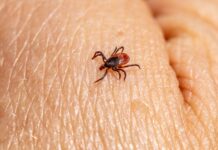The link between air pollution and declining respiratory health is fairly obvious, but we now know that the air we breathe also has a direct impact on brain health. And millions of children who are at their peak of brain development are especially at risk.
Human-made air pollution can be even finer than dust, and once it’s in our lungs it can easily get into our blood. From there, it can travel to the brain and trigger inflammation and break down the protective blood-brain barrier that keeps harmful material out.
Brain inflammation can lead to neurodegeneration and cognitive deficits. The post-mortem evaluation of brain samples of children raised in the highly polluted air of Mexico City show deposits of particulate matter from the pollution.
Sometimes these deposits are also surrounded by the beginnings of same molecular pathology that is linked to Alzheimer’s disease. The youngest person with these signs was only 11 months old.
This is not normal.
, professor of neuroscience at Carleton University, collaborated with researchers in Mexico City to study whether living subjects also showed diminished cognition.
Matched for age, sex and family and neighbourhood backgrounds, children in Mexico City had significant cognitive decline compared to children raised in less polluted areas.
Neuroimaging showed differences in development of key areas of the brain, with diminished volumes of white matter. These are the parts of the brain that relay messages through the central nervous system, and they are necessary to learning.
It’s the moral responsibility of the adults who have the power to take urgent action now. The youth are in the streets demanding action to stop pollution and climate change as they acutely feel fear for their futures. What’s more, the air they breathe could be robbing them of their minds.
Clean air is critical to the well-being of every person alive, and the impact of breathing toxic air has lifelong consequences. Protecting children from exposure should be a top priority.





































